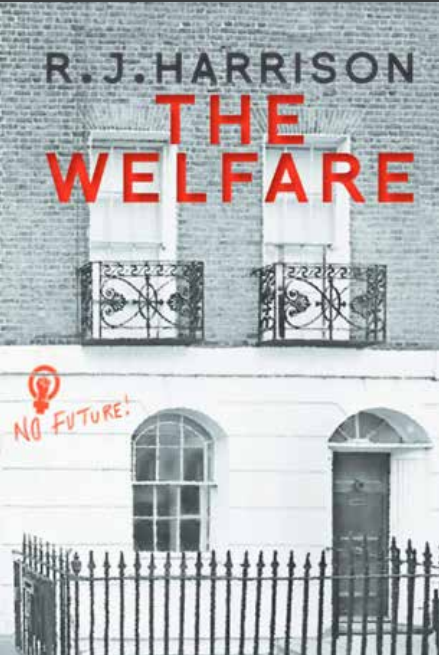 Much-loved WoW member, Harry Harrison, died in November 2023. He’d workshopped his novel, ‘The Welfare’ through the group’s meetings for well over a year. We were close to reading the ending, and looking forward to seeing how the story played out. It was a massive shock when Harry was diagnosed with leukaemia and told it was untreatable.
Much-loved WoW member, Harry Harrison, died in November 2023. He’d workshopped his novel, ‘The Welfare’ through the group’s meetings for well over a year. We were close to reading the ending, and looking forward to seeing how the story played out. It was a massive shock when Harry was diagnosed with leukaemia and told it was untreatable.
Harry had just a few months left, but wanted his book finished and published. He couldn’t manage that himself, and WoW members wanted to help. So, despite being extremely unwell, Harry put together a plan. It was a testament to his determination and character that, despite his ill health, he created a thoughtful and detailed plan of action to make it as easy as possible for the group to finish his book. We all agreed to help because the book was so good it deserved to be enjoyed by a wider readership.
Harry determined that Richard, who has a wonderful writing style, similar to his own, would finish the last two chapters based on his notes. Duarte and Nick would edit the manuscript. Lin, of Coinlea Publishing Support, would proofread the manuscript. He gave me contact details for a publisher and friends with knowledge of the business, plus people who might help promote the book. He had ideas for the book’s cover, and as a keen member of Jericho Writers he asked on the forums how to improve the novel’s blurb. As his health was failing, he even dictated words from his hospital bed. This book meant so much to Harry.

The novel draws on Harry’s 50-year career in social work. The Welfare is set against the backdrop of 1970s London, and follows Jack Wilson, a young social worker who leaves behind his rural upbringing to navigate the challenges of life in the capital. Jack faces complex clients, office politics, and a romance that changes everything. The story is told with warmth and honesty. It’s an insightful look at the challenges and triumphs of social work, but also a poignant and entertaining story. WoW are delighted that this story will now gain a wider readership.
Thanks to Richard White, Duarte Figueira, Nick Sweeney and Lin White, for devoting so much time and effort to making this happen. I know it was a lot of work but it was certainly a wonderful way to honour a friend.
The book is available to order from your local or online bookshop. You can buy The Welfare HERE.
